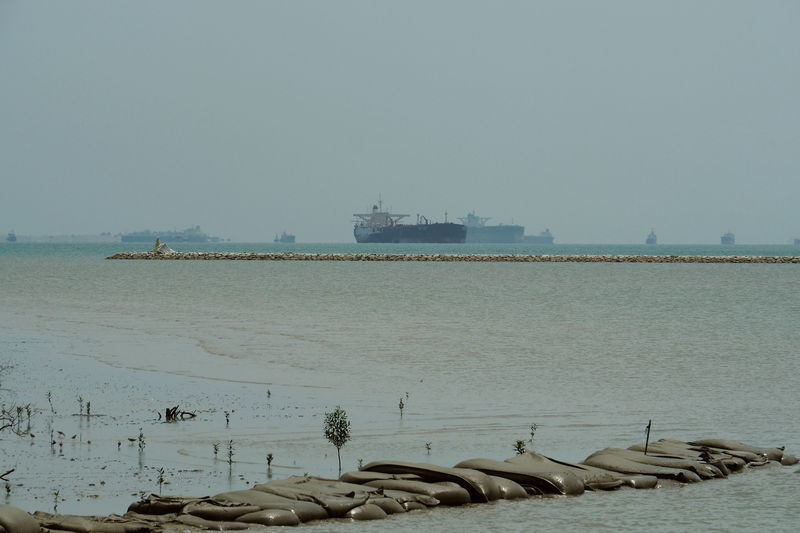Investing.com — Tanker stocks rose sharply Tuesday after the U.S. Treasury Department imposed sanctions on 21 additional ships carrying Iranian crude, including 10 very large crude carriers (VLCCs).
The move signals a renewed push to enforce sanctions on Iran, which could significantly tighten global VLCC supply and strengthen the tanker market, according to a note from Jefferies.
Jefferies maintains a bullish view on tanker stocks, citing attractive valuations, improving sentiment and a stronger winter season. The company highlights DHT Holdings (NYSE:), Frontline (NYSE:) and International Seaways (NYSE:) as top players to take advantage of potential tailwinds in the VLCC market.
The latest sanctions bring the total number of VLCCs under restrictions to 35, with a further 85 ships on a ‘watchlist’ because they may be carrying Iranian oil. These 120 ships represent almost 14% of the global fleet of 850 commercial VLCCs, posing a substantial capacity risk if further enforcement escalates.
Iranian crude oil exports have risen to 1.7 million barrels per day (mb/d) in 2024, up sharply from 0.3 mb/d between 2019 and 2022, fueled by the moderate enforcement of sanctions and the dependence on shadow fleets. Most of these exports go to China, putting pressure on other producers such as Saudi Arabia, whose exports have fallen from 6.5 million barrels per day in 2023 to 6.0 million barrels per day in 2024.
Jefferies sees the sanctions as a potential catalyst for the tanker market. Limiting Iran’s shadow fleet could reduce the availability of VLCCs while increasing demand for sanctions-free ships to meet global crude oil transportation needs. A repeat of the market dynamics of 2019, when US sanctions on Chinese firm COSCO took 50 VLCCs out of trading and sent rates above $200,000/day, could be on the horizon.
Should sanctions further limit Iran’s crude oil exports to 2019-2022 levels, global tanker utilization could rise from 85% to 95%, significantly worsening market conditions.
The combination of stricter sanctions, reduced VLCC supply and increased demand for non-sanctioned crude oil transportation creates favorable risk-reward dynamics for tanker stocks, according to Jefferies.


